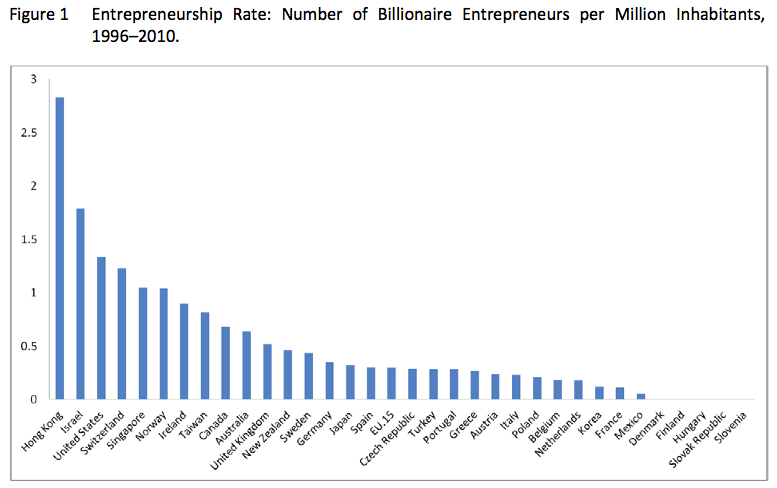When you think of an entrepreneur, doesn’t a person who has started a business come to mind? In the United States, that could take us to industries where the self-employed predominate like construction and restaurants, auto repair shops and beauty salons.
But, if we associate entrepreneurs with innovation and growth, are the industries with the most new small business firms really entrepreneurial?
Discussions of entrepreneurs typically refer to innovative people who want to grow a business. However data about entrepreneurs focus on startup numbers. Consequently, I wonder if we have a bit of a problem because typical startups are not innovative and most of their owners tend not to demonstrate a growth commitment.
Trying to identify entrepreneurs, one academic study reports that only 10-20% of all US startups had founders who cared about innovation. As for growth, the same researchers said that 75% of their respondents said, “I want a size I can manage myself or with a few employees.”
No innovation. No growth. Maybe we should use a different metric for measuring entrepreneurship?
In “Small Business Activity Does Not Measure Entrepreneurship,” researchers hypothesize that instead we should focus on society’s most affluent individuals. Looking from 1996-2010 at Forbes’s ranking, in 50 countries they found 996 self-made billionaires whom they called high-impact entrepreneurs. Their purpose was to display that an emphasis on small business startups can be misleading when talking about the growth or contraction of meaningful entrepreneurship. Instead, we can judge the prevalence of entrepreneurship in a country by looking the proportion of very successful business people.
Using billionaire statistics, they identified the world’s most entrepreneurial countries:

Our bottom line? Because entrepreneurship is tough to pin down, we should be sure to recognize whether our data directly relate to our definition. Consequently, if we want to emphasize innovation and growth, small business startups might not be appropriate statistics. Instead, to recognize countries that encourage entrepreneurship, we can focus on the proliferation of firms like Wal-Mart, Amazon, Ikea and H&M and the people who propelled their ascent.
Your opinion of ignoring small startups when discussing entrepreneurship? Please let us know in a comment.
Do Real Entrepreneurs Have to be Rich?

Elaine Schwartz
Elaine Schwartz has spent her career sharing the interesting side of economics. At the Kent Place School in Summit New Jersey, she was honored with an Endowed Chair in Economics. Just published, her newest book, Degree in a Book: Economics (Arcturus 2023), gives readers a lighthearted look at what definitely is not “the dismal science.” She has also written and updated Econ 101 ½ (Avon Books/Harper Collins 1995) and Economics: Our American Economy (Addison Wesley 1994). In addition, Elaine has articles in the Encyclopedia of New Jersey (Rutgers University Press) and was a featured teacher in the Annenberg/CPB video project “The Economics Classroom.” Beyond the classroom, she has presented Econ 101 ½ talks and led workshops for the Foundation for Teaching Economics, the National Council on Economic Education and for the Concord Coalition. Online for more than a decade. econlife has had one million+ visits.





